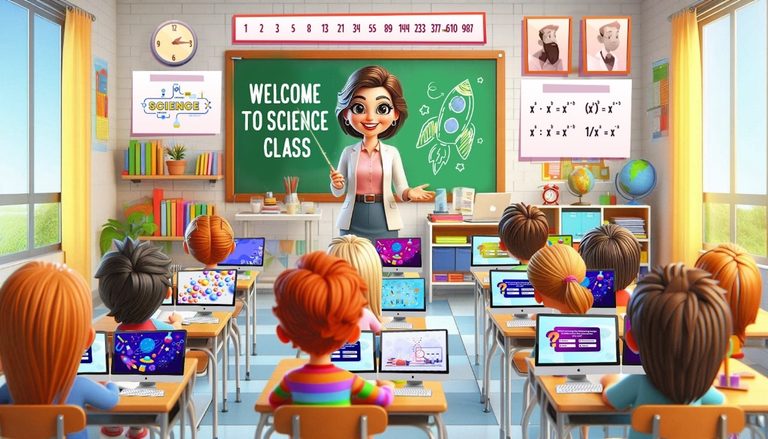- Rising demand for learning technologies
- Egypt and Saudi produce bulk of startups
- Market to grow 13% per year by 2030
Demand for education technology, or edtech, is growing in the Middle East and North Africa as countries seek to bolster learning to drive economic growth.
However, experts warned against excessive use of technology in classrooms, saying it could affect the attainment of basic skills such as reading and writing.
Examples of edtech include interactive whiteboards, digital textbooks, immersive educational apps and teacher training programmes. Taaleem, a UAE-based schools operator, told AGBI it has doubled its investment in edtech over the past five years and now uses 3,000 platforms across 32 schools.
“I have sessions with different tech providers almost constantly,” said Glen Radojkovich, Taaleem’s deputy director of education. “There has been an absolute mushrooming of investment in the sector.”
Nahdet Misr, an Egyptian education provider, said that since 2017 it has either invested in or incubated 76 edtech startups through EdVentures, its venture capital arm, and has a pipeline of 30 more.
Dalia Ibrahim, chief executive of Nahdet Misr Publishing House and founding chief executive of EdVentures, said: “The sector has gained significance in Mena, particularly in the wake of the pandemic, and we expect the pace of growth to continue.”
- Taaleem profits rise with surge in UAE student numbers
- Saudi Arabia needs a sea change in higher education
- Chasing the elusive gold star for Gulf schools
- School’s in: UAE education is ripe for investment
The return on investment in EdVentures’ portfolio companies is 6.2 times the initial investment, Ibrahim said.
Educational attainment among Mena schoolchildren sits below global norms, with countries struggling to reach average scores in three major assessments, PISA, TIMSS and PIRLS, over the past decade.
Among the issues are discrepancies in the quality of public and private education in the UAE and stark regional variations across Saudi Arabia and Egypt.
Countries accelerated their use of remote learning in 2020, seeking solutions to poor attainment and prompted further by Covid lockdowns, resulting in a surge in edtech startups and venture capital.
Attainment rankings
- Progress in International Reading Literacy Study (PIRLS) measures reading achievement at year five level (ages 9-10) in 57 countries
- Programme for International Student Assessment (PISA) is the OECD’s study of 15-year-olds’ abilities in reading, maths and science
- Trends in International Mathematics and Science Study (TIMSS) tests are taken every four years by two cohorts of students, year five and year nine, from 60 countries
The sum invested in Mena edtech startups rose from $2 million in 2017 to $21 million by the end of 2019, according to Magnitt, a research company based in Dubai. Since then, funding has grown at a compound annual growth rate (CAGR) of 54 percent to more than $50 million in 2021, double the sum spent the previous year. The number of edtech startups has risen threefold, from 270 in 2017 to 800.
The Middle East edtech market was valued at $4 billion in 2022 and is projected by UnivDatos Market Insights, a market research company based in India, to grow at a 13.8 percent CAGR to 2030.
Schools and pupils are “embracing the benefits and convenience of digital platforms”, Ibrahim said: “Edtech complements traditional face-to-face classroom education by providing students with diverse, interactive and tailored learning.”
For example, she said, artificial intelligence enabled students to have a personalised learning journey, while augmented and virtual reality can enhance students’ understanding of complex subjects, particularly sciences.
 Kitmek
KitmekHowever, while edtech is viewed as an essential tool in higher education, its value for school-age learners is less clear, said Sally Jeffery, Middle East education and skills lead at PwC.
“The pendulum of opinion has swung from enthusiastic [amid Covid necessity] to questionable, as there are concerns about impact on focus and wellbeing,” she said.
Last July, a Unesco report warned of the risks of using technology in schools, including gaps in vital skills acquisition and data leaks.
Taaleem is increasingly selective in its use of technology, Radojkovich said. “If it’s going to improve education provision, it’s fantastic. If the student’s EQ [emotional intelligence] is going to be lesser, or their ability to focus, read, write or develop streams of thought independently is going to be weakened, we need to tread very carefully.”
Mena edtech companies
- Egypt’s Akhdar – publishes summaries of Arabic audiobooks; raised an undisclosed six-figure round from Saudi Arabia VC, Value Maker Studio in November
- Egypt’s Crafty Workshop – supports handicrafts through digital training platform; raised $400,000 from EdVentures in October
- Jordan’s Abwaab – online content provider for secondary schools. Has raised a total of $27.5 million from investors including Beco Capital
- Saudi Arabia’s iStoria – specialises in English language learning; secured $1.3 million in seed funding round in January
- Saudi Arabia’s Noon – offers students live, interactive tutoring with ‘gaming’ features; closed $41m Series B round in November
- Saudi Arabia’s YaSchools – manages educational ecosystem for teachers, parents and students; raised $600,000 from seed investors in August
- UAE’s Kitmek – immersive multilingual app for primary schoolchildren
